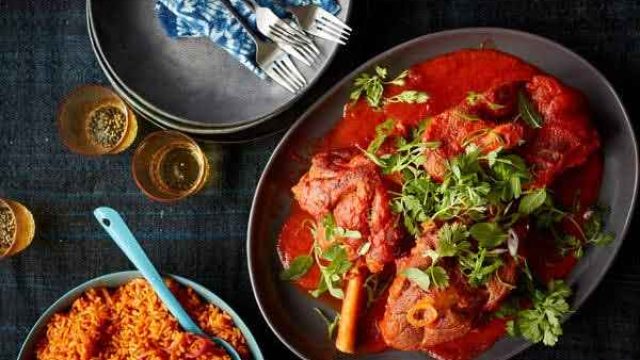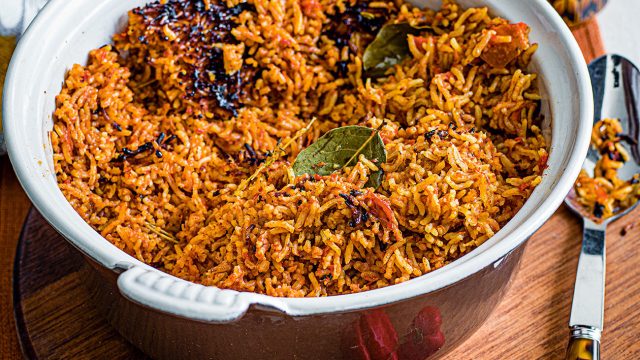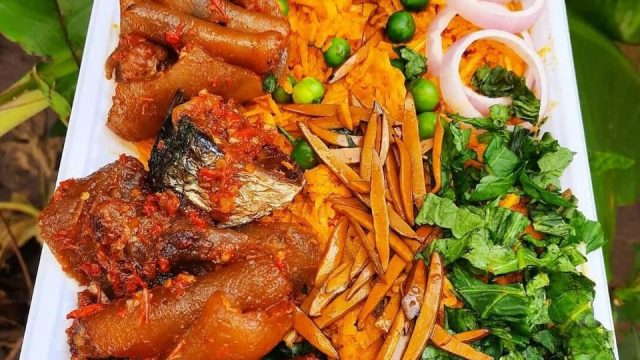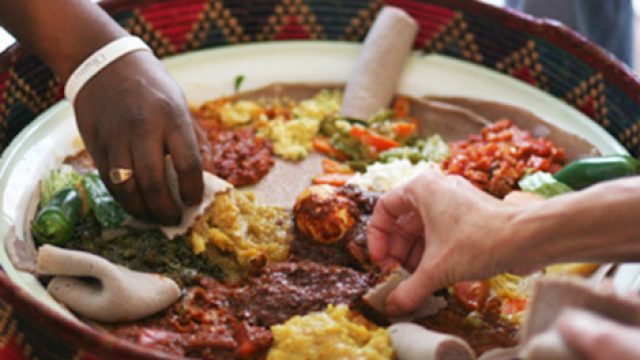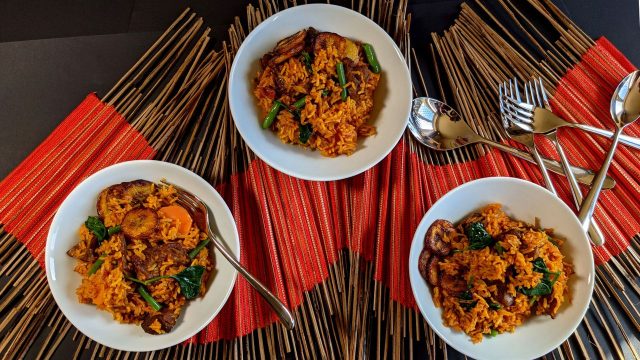
“Food is the language that speaks of our heritage, and traditional cuisine is the storybook that brings those untold tales to life.”
[ad]
Ever heard unique stories about your favourite traditional Nigerian dishes? Then it’s time to discover a treasure trove of Nigerian dishes that go beyond mere sustenance. These culinary delights are steeped in centuries-old traditions and carry profound cultural significance, reflecting the diverse ethnic groups and their rich culinary heritage.
Time to feast your eyes on the stories you most likely never read about your beloved traditional Nigerian dishes.
Jollof Rice: A Taste Of Unity And Celebration
Jollof rice is not just a dish; it’s a symbol of communal togetherness and a celebration of Nigeria’s cultural diversity. The one-pot wonder is adorned with colours, flavours and spices that vary across regions, each reflecting the unique tastes of ethnic communities. Whether it’s the smoky flavours of Nigerian jollof, the spiciness of Ghanaian jollof or the richness of Senegalese jollof, the friendly rivalry surrounding this dish showcases the pride and unity found in the diversity of West African cultures.
Pounded Yam With Egusi Soup: A Labor Of Love And Hospitality
In the heart of Nigerian homes, you’ll find the rhythmic pounding of yam, a process that transcends mere culinary preparation. Pounded yam, when paired with egusi soup, creates a cultural experience that celebrates diligence, hard work, and the spirit of communal sharing. The act of pounding yam, often done by multiple individuals working in harmony, demonstrates the significance of collaboration and the importance of preserving traditional cooking methods. When served to guests, it embodies the warm hospitality that Nigerians are renowned for, offering a glimpse into the country’s rich cultural fabric.
Akara: Golden Fritters, Symbolising Transformation and Renewal
Either in the cool of the evening or under the scorching Nigerian sun, the sizzling sound of frying akara fills the air. These golden fritters, made from peeled beans blended with spices and deep-fried to perfection, hold deep cultural significance. ‘Akara’ represents the transformative power of fire, turning humble ingredients into a delectable treat. It is commonly prepared during festive seasons, religious celebrations, and special occasions, symbolizing renewal, purification, and the triumph of light over darkness. Sharing a plate of akara with loved ones fosters a sense of camaraderie and joy, connecting people through the shared experience of this beloved snack.
Edikang Ikong: Unity In A Pot, Celebrating Cross-Cultural Fusion
Edikang Ikong, a traditional soup originating from the Efik and Ibibio people of southeastern Nigeria, is a culinary masterpiece that tells a story of unity and cross-cultural exchange. This hearty soup combines two indigenous vegetables — okazi (African oil bean leaves) and waterleaf — along with an array of protein-rich ingredients. The harmonious marriage of flavours and textures in Edikang Ikong mirrors the unity and integration of different ethnic groups in Nigeria. As families come together to prepare and enjoy this dish, they celebrate the strength and diversity of their cultural heritage.
Suya: Spicing Up Tradition With Entrepreneurship
As the tantalising aroma of suya wafts through the streets, it not only tickles the taste buds but also tells a story of entrepreneurial spirit deeply rooted in Nigerian culture. Suya, skewered meat marinated in a tantalising blend of spices and grilled to perfection, is more than just a delicious snack; it’s a representation of resourcefulness and innovation. Street vendors skillfully season and grill the meat, passing down their secret recipes from generation to generation. Suya has become a symbol of community gatherings, celebrations, and the joyous spirit of street food culture.
Your favourite traditional Nigerian dishes are more than a sum of their ingredients. They carry the weight of history, embodying the deep cultural significance of diverse ethnic groups and their culinary heritage. From the communal pot of jollof rice that unifies West African nations to the labour-intensive process of pounding yam that showcases hospitality and unity, and the entrepreneurial spirit embodied in the flavours of suya, these dishes are a testament to the richness and depth of Nigerian culture.
So, the next time you savour these traditional Nigerian delicacies, let the flavours transport you to a world where culinary traditions intertwine with cultural identity. Appreciate the stories woven into each bite, and celebrate the diversity that makes Nigerian cuisine a true reflection of the nation’s heritage.
[ad unit=2]

